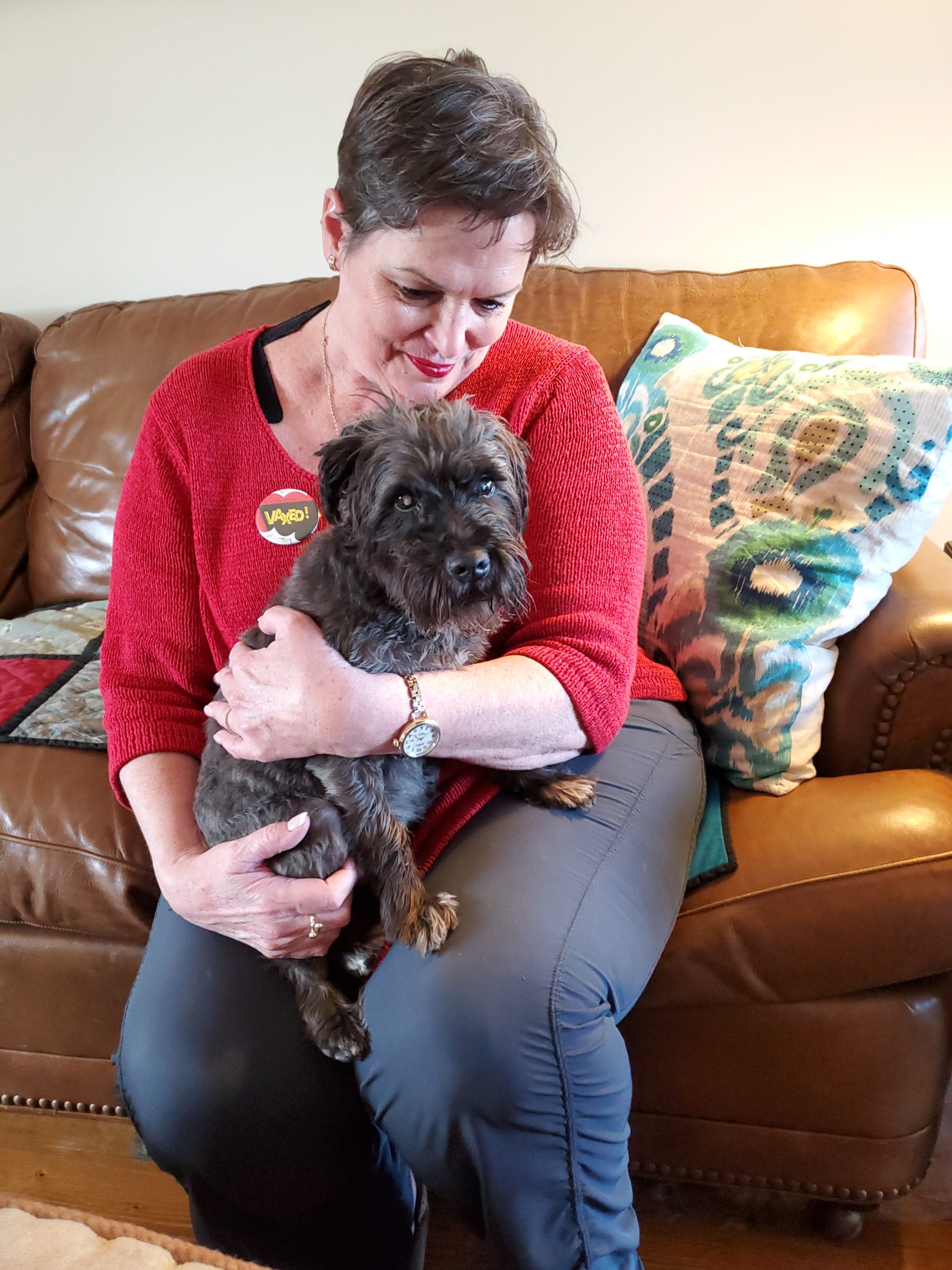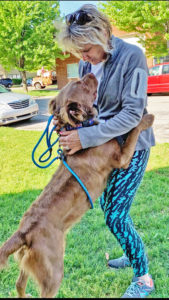If you see a woman walking a dog around the Hyde Park neighborhood east of downtown Wichita, there’s a decent chance it’s Jodi Bartman. Especially if the identity of the dog keeps changing.
Four days a week, Bartman shows up at Beauties & Beasts, an animal rescue organization on South Pattie, to give its furry boarders a change of scenery and chance to stretch their legs. On a recent afternoon, she took four dogs on individual strolls.
“It’s good exercise for me,” Bartman said. As for her canine companions, “They live in big kennels, but they love to get out, and they get so excited when the walkers come.”
Bartman is one of many volunteers who help animal rescue organizations fulfill their mission of finding homes for dogs and cats rather than face euthanasia. The organizations say that help has never been more needed as a result of the COVID-19 pandemic.
“Generally speaking, the animal welfare world is in crisis,” said Christy Fischer, executive director of the Wichita Animal Action League (WAAL), another rescue organization. “We have never had as many animals flood the system.”
Bartman started volunteering at Beauties & Beasts five years ago, when she and her family were still running Casey’s Bar & Grill in south Wichita. That’s how she met Dwight, a dog she eventually adopted. After selling the business, Bartman stepped up her involvement with the nonprofit.
Similarly, Kimberly Moore’s retirement from a career as a respiratory therapist in Newton allowed her to become a foster fur parent for WAAL in 2016. WAAL is a foster-home-based rescue that does not operate a full-time facility.
Moore particularly likes volunteering and fostering for WAAL’s Safe Paws Alliance outreach program, which provides housing to pets of people who are seeking shelter from domestic abuse and veterans who need to be hospitalized.
“There’s a huge need (for the program), and it’s a wonderful opportunity to help people who are in a bad situation,” she said.
Moore said she would have a whole houseful of fosters hanging around with her rescued dogs Baxter and Betty if she could. Betty is what’s known as a “foster fail” because Moore ended up adopting her herself.
“I went to pick her up at the animal shelter to foster, and as I walked out, I knew she wasn’t going anywhere,” said Moore of the nearly blind schnoodle.
Another volunteer, Netta Otis, works full time but still finds time to run WAAL’s resale store in Towne West Square, which is open some weekends. Otis also coordinates WAAL’s cat foster placements.
Fewer animals were spayed and neutered during the pandemic as vets limited surgeries, which led to more animals being born, she noted. Plus, several owners who adopted animals to provide companionship while working from home or being locked down are now surrendering those animals.
Both Fischer and Jennifer Sanders, a board member with Beauties & Beasts, said they welcome older volunteers, particularly since some may have more flexible schedules during retirement.
“All three of our animal transports this morning were done by retired individuals,” Fischer said.
Being a foster means helping animals without a full-time commitment to pet ownership. Recently, Beauties & Beasts posted an appeal for seniors on its Facebook page, noting that the organization takes care of all associated costs for the foster animals. WAAL does the same.
Besides fostering, volunteers are needed for myriad duties within the organizations, both said.
For more information, visit the WAAL website, waalrescue.org/volunteer, or the Beauties and Beasts website, beautiesandbeasts.org/volunteer, or check with your local community’s animal rescue and shelter organizations.
Contact Amy Geiszler-Jones at algj64@sbcglobal.net.










